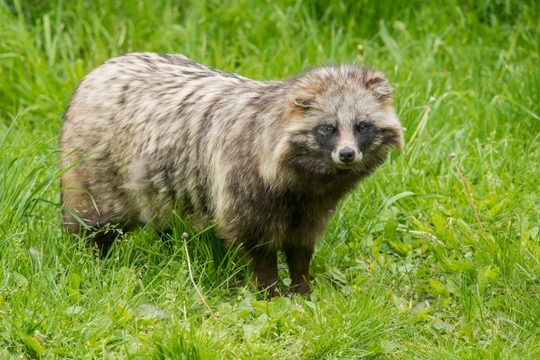
RSPCA again raise concerns over exotic pets in the home
Time and time again, our national treasure, the RSPCA, have reiterated their concerns about both the trade and the ownership of exotic pets in the home, some of which are also potentially dangerous.
Concerns are raised not only for potential problems within the home, but also for the animal’s welfare. The RSPCA would like the trading or owning of exotic pets to be exercised under much more stringent laws than those that are currently in place.
Back in 1969, there was the incredible story of lion cubs being for sale in Harrods, London. Two Australian friends, living in a flat in the Kings Road, Chelsea, purchased the male cub, completely overriding the practicalities of owning what could potentially be a dangerous beast. They became famous overnight, and the antics of the threesome has been widely publicised, both on television and social media. Needless to say, the RSPCA never want to see such a purchase again.
The story isn’t all bad – ‘Christian’, the lion, was eventually repatriated into the wild and was seen prowling not so long ago, on the banks of the River Tana. This story is only one success story in the midst of a myriad of disasters in keeping exotic pets.
But herein started a trend – unscrupulous dealers and potential owners, often influenced by cinema, TV and social media, have ventured into dealing in more and more exotic pets. There have been reports of tigers and crocodiles in captivity in the UK, which is enough to send shivers down the spine of even the bravest of people.
These types of animals are wild animals and should be kept in their natural environments. Often animals are taken from their habitats and shipped long distances abroad, to satisfy both dealers and potential owners. The RSPCA believe that this is criminal activity and should be dealt with accordingly. But they seem to be fighting a losing battle, as the keeping of exotic pets has increased over the last 5 years.
Often the animals suffer injury or a great deal of stress by being locked up for hours on end during their journey. They may be crammed in cages, several at a time when being shipped to a dealer. Some are even dead before they reach their destination or deteriorated so much that they die within a few days.
The RSPCA would like to remind anyone thinking of keeping an exotic pet that they have a duty under the Animal Welfare Act to replicate the natural habitat and needs of the animal when kept domestically. This is the case by law and offenders will be penalised with fines, confiscation of the animal and even jail sentences.
Unsuitable pets for domestic environments
There is a long list of unsuitable animals that the RSPCA provide on their website. They believe that certain wild animals, such as primates, should never be kept domestically, as their needs are complicated and far too difficult to fulfil in the home. They also consider the potential danger from certain species, both from attack, and from disease. Under no circumstances should any exotic species be kept in a home with children, who are more susceptible to animal-derived illnesses.
Bona fide dealers of animals that have been raised domestically will normally provide the correct information about raising such animals, but there is still a long list of those that should never be kept under any circumstances. There are quite a few reptiles also on the list, so it is wise to examine this thoroughly before making any decisions.
Lizards have received bad press over the years with several instances of children contracting meningitis via the salmonella bacterium. Why would you put a child through that eventuality?
The RSPCA end up with many exotic pets in their care
The RSPCA can often be inundated with exotic pets that end up in their care. They report that many escape as they have no desire to be restrained in captivity. Others are ‘accidentally lost’ (by this we mean that owners release them on purpose having realised that they cannot look after them, or that they become aggressive towards them). In many cases there is no opportunity to trace an owner, so they remain in the care of the RSPCA, until hopefully, they can be rehomed. This is difficult with few suitable households or lack of interest in owning such animals as pets. Some can be homed in zoos, wildlife parks or similar environments, but this is not always the case.
Wildlife and Countryside Act 1981
There is major concern regarding non-native species being released into the wild, and the deep possibility that they will not survive in the countryside in the UK. It is strictly illegal to release these species (named under the act). Another angle of concern is that of ‘invasive species risk’ to our very own indigenous wildlife, with the possibility of ‘wipe-out’ in large numbers. This is certainly not something we would wish to see.
The RSPCA do everything within their power to ban the sale of any exotic species that will pose a serious health risk to both people and our wildlife. One such instance was that of raccoon dogs (also called Tanukis), found in large numbers in Wales in 2017, who present a parasitic threat to our countryside animal dwellers. They have called for a ban on the sale of these rather cute looking animals but currently it continues. The parasites concerned are potentially lethal and can lay dormant in humans for up to 20 years, so beware.
The RSPCA are always on hand with advice from the specialists on the viability of keeping exotic pets and what to do. The service is free, and there are plenty of fact sheets on their website.



